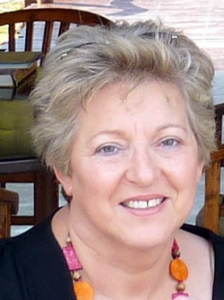Six mental health program leaders at Partners In Health pioneer community-based care across Haiti, Peru, Sierra Leone, Liberia, Rwanda, and Mexico. They transform stigmatized, inaccessible treatment into integrated primary health services.
Nine in ten people worldwide receive no care for treatable mental health conditions. Partners In Health (PIH) addresses this crisis by expanding mental health services from institutional settings into communities across 11 global sites, meeting people where they live.

In Haiti, Dr. Junior Brice, MD, MPH, leads Zanmi Lasante’s mental health program with a comprehensive integration model. “It is a model respectful of local culture and addresses mental health as both a medical and a social issue,” Dr. Brice said in a recent article from PIH. He has embedded mental health services into primary care while training community health workers to provide consistent support. In a country where mental health remains deeply stigmatized, his team treats psychological conditions alongside the social and economic factors that drive them.

Carmen Contreras, MSc, brings two decades of experience to Peru’s Socios En Salud program. Her community-focused approach has transformed how patients access care.
“Through community support, we help people with mental health problems approach health centers with greater confidence,” Contreras said in the same article. The cross-site collaboration between PIH programs has strengthened their collective impact.

In Sierra Leone, Chenjezo Gonani, BSc, MMSc, witnessed the country’s transformation from chains to care. Before PIH’s involvement, patients at Kissy Home—sub-Saharan Africa’s oldest psychiatric hospital—were literally chained due to lack of medication and providers.
PIH Sierra Leone established the country’s first child and adolescent mental health unit, first psychiatry residency program, and first national mental health helpline.

Dr. Helen Tedros Haile addresses Liberia’s urban-rural divide in mental health access. “It’s not just about medication or diagnosis, it’s about dignity, equity, and long-term recovery,” Dr. Haile shared in the same article.
Without PIH’s presence in southeast Liberia, rural patients would face prohibitive travel distances and costs. “Knowing that we are changing the narrative around mental health in Liberia keeps me going,” she said in the same article.

Rwanda’s Augustin Mulindabigwi, MPH, focuses on sustainable system integration. “We do not just provide services—we invest in training, infrastructure, data systems, and advocacy,” he said in the same article.
His team has helped decentralize mental health care, embedding it within primary health settings across the country.

In Mexico, Ana Cecilia Ortega, MSc, has grown Compañeros En Salud’s mental health team from one to thirteen members, with community mental health workers at its core. These workers save patients from four-to-six-hour journeys to reach care, bringing teleconsultations and group interventions directly to remote communities.
Each leader’s approach reflects PIH’s fundamental belief: mental health care is a human right that must be accessible, community-based, and culturally relevant. Their work transforms not just individual lives but entire health systems, proving that comprehensive mental health care can thrive even in the world’s most underserved regions.
Read the full article, published May 28, 2025: Meet Six PIHers Leading Mental Health Care Around the World
Related Articles

Ukraine’s Front-Line Medics Find Support Through Mental Health Programs
Repower, a Ukranian mental health charity, provides crucial psychological support to battlefield medics facing exhaustion and trauma from grueling front-line service.

Redefining Mental Health Care with Peer Support in LA County Jails
The Los Angeles County jail system’s innovative peer mental health program has grown from a small pilot to serve over 400 patients, becoming a model for correctional facilities nationwide.

From Personal Crisis to National Mental Health Lifeline: The Story of SADAG’s Founder
Zane Wilson transformed her experience with panic disorder into South Africa’s largest mental health support network, creating the South African Depression and Anxiety Group, which now operates 30 helplines and supports over 180 support groups nationwide.
